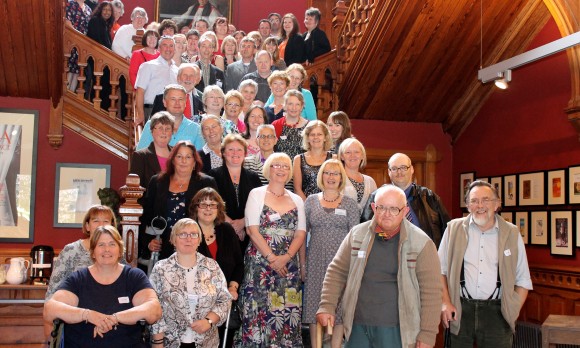Befrienders Highland
Mental ill-health changes people’s relationships with friends. One Highlands organisation is helping those cut off reengage. As Jenny McBain finds out. //
Life without the input of friends is almost unthinkable for most people, yet those who have experienced mental ill health often find themselves cut off from the support of others. Jenny McBain found out about an organisation that can help.
Two friends chat over coffee in a cosy high street café. They are clearly comfortable in each other’s company and enjoying all the benefits of face to face contact that are of particular value in the digital age.
We might imagine such an everyday experience is an essential part of life and accessible to everyone. But for those who have experienced mental ill-health, simple social contact can be daunting and difficult.
This is where an organisation such as Befrienders Highland can help. They recruit and train volunteers who can step in and provide life-enhancing support and friendship to those who need it most.
Befrienders Highland is celebrating its 20th anniversary. It is one of several groups throughout the UK that offer a befriending service. However, Befrienders Highland has a massive challenge because it covers an extensive geographical area, encompassing the whole of the Highlands as well as Argyll and Bute.
Sally Mackintosh is one of their co-ordinators and sees the value of this service every working day. She says, “Many people lack someone to talk to on a social level. They may have contact with a team of professionals who are paid to speak with them but having someone who freely gives of their time to establish a friendship is particularly valuable. This is where the strength of befriending lies.”
Potential volunteers are carefully screened and checked to make sure they are suitable. They then undergo a training course which involves some individual study. After that they are designated a friend. Sally says, “A lot of effort goes into matching people who have shared interests and experiences. Our training programme is very thorough and support is ongoing. That is why volunteers tell us they stay with us. They feel that we really respect them.”
There are strict rules surrounding the befriending process. Volunteers are paired up with someone of the same gender and similar age. Conversations must not revolve around health issues because the whole point is to widen people’s horizons and make them feel positively connected to others. Also volunteers must not advise friends; they are there to support and encourage.
People who cannot get to a normal meeting place such as a coffee shop or cinema can get paired up with a distance befriender who will communicate by letter, email or telephone. There are also new initiatives such as an online poetry group and a craft group which bring together volunteers with friends.
For all that the approach and delivery may differ in accordance with need and geographical location, the goals of befriending remain the same. Sally says, “The overall aim is to get people to the stage where they feel confident and they can go out and socialise independently.”
Of course, measuring success is of key importance. Friends fill out an evaluation form rating themselves in terms of feelings of loneliness, isolation and other factors. Then there is a regular review to rate progress. Regular evaluation as to the progress of the friendship also takes place, taking into account the perspective of both volunteer and friend.
As statutory services contract and grant funding for drop- in centres disappears, befriending is becoming ever more important. Some people refer themselves; others arrive in Sally’s office at the suggestion of their social worker or community psychiatric nurse.
What is clear is that befriending is a phenomenon spreading throughout the UK and established organisations such as Befrienders Highland are keen to play an advisory role in its expansion.
Executive director of Befrienders Highland Paul Eddington says, “Collaboration not competition is going to define our future. We need to work together with other organisations in the Third Sector to meet the needs of our communities. At present our training package is being used by other organisations the length and breadth of the UK and that is a good thing because we have a lot of experience in this field.”
There are currently 150 volunteers on the books but more are required and there is a particular shortage of young men. Skilled board members who are experts in finance business, marketing or publishing are also needed. The lease is about to expire on the current business premises and new offices are being sought in the Inverness area.















Write Your Comment